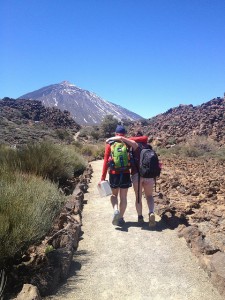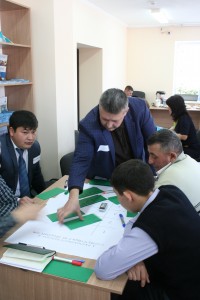The School of Archaeology, Geography & Environmental Science has been successful in receiving the Silver Athena SWAN award, given by the Equality Challenge Unit.
Athena SWAN was established in 2005 to encourage and recognise commitment to tackling gender inequality in higher education. It has traditionally covered science, technology, engineering, mathematics and medicine (STEMM) disciplines, but has been expanded to include arts, humanities, social sciences, business and law departments (AHSSBL) as well.

The winning submission from the Gender & Fieldwork photo competition, by George Hibberd
SAGES received the Bronze Athena SWAN Award in 2011 and has continued to be committed to creating an inclusive environment for all. Our School-specific objectives for Athena SWAN are:
1. To aspire to a culture of equality for our staff (academic, admin, research and technical) and students;
2. To enhance induction, communication and consultation processes within and between Archaeology, GES and SAGES;
3. To improve collegiality and achieve a more cohesive structure in SAGES;
4. To foster a supportive culture of mentoring, review (PDRs), training and promotion across SAGES (regardless of career stage).
Dr Nick Branch, current Head of School, says “The last three years has been a period of rapid and positive change for the School. Since our Bronze Award, we have extensively refurbished the School infrastructure, changed the School name and mission, and prioritised equality, diversity and wellbeing. Athena SWAN has been the key platform for transforming the culture and improving working lives within the School.”
Ellie Highwood, Dean for Diversity and Inclusion, said the silver award to SAGES reflected the impact of innovative actions, such as a year-long School-wide “Gender in Fieldwork” project, on everyone in the School.







